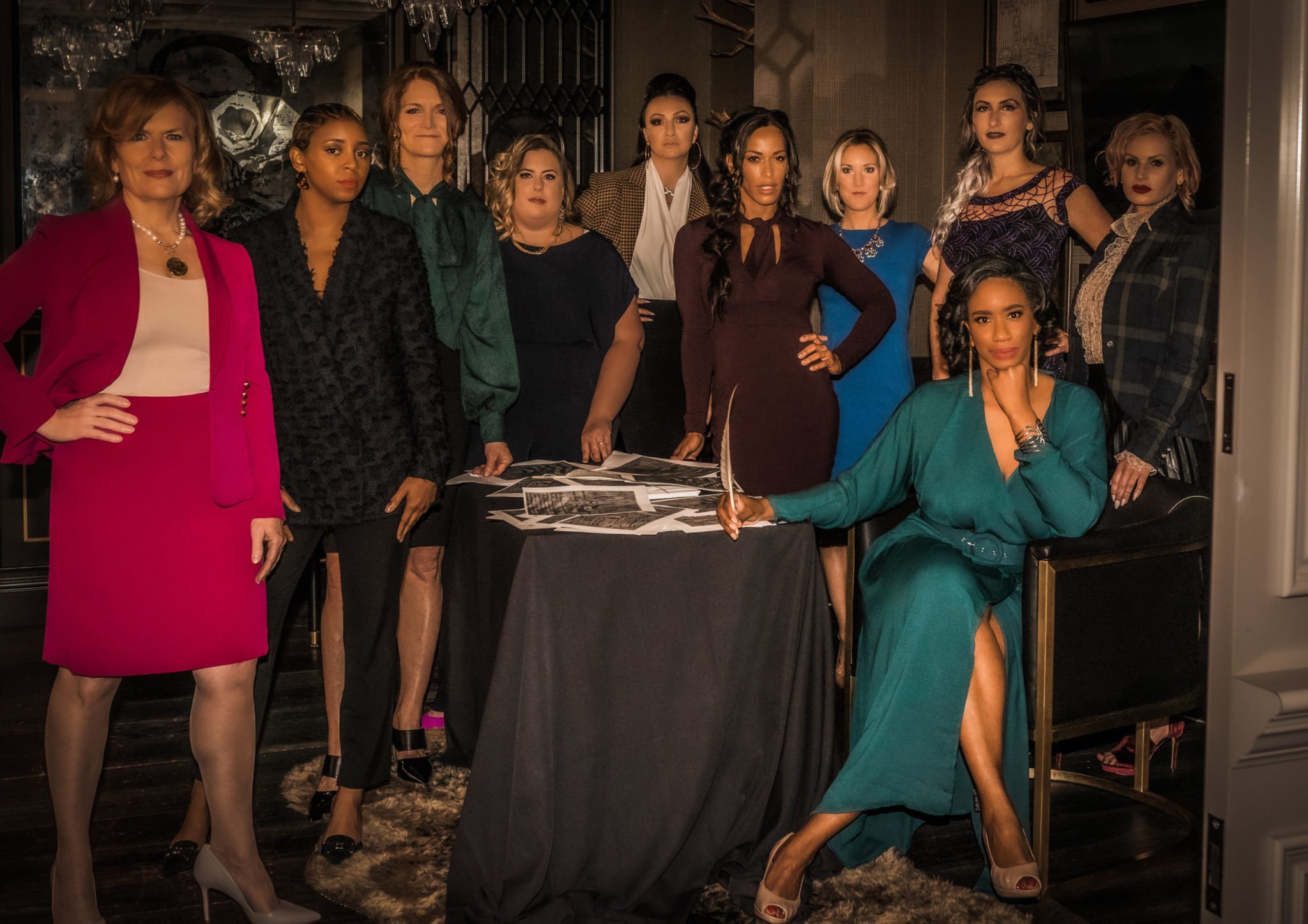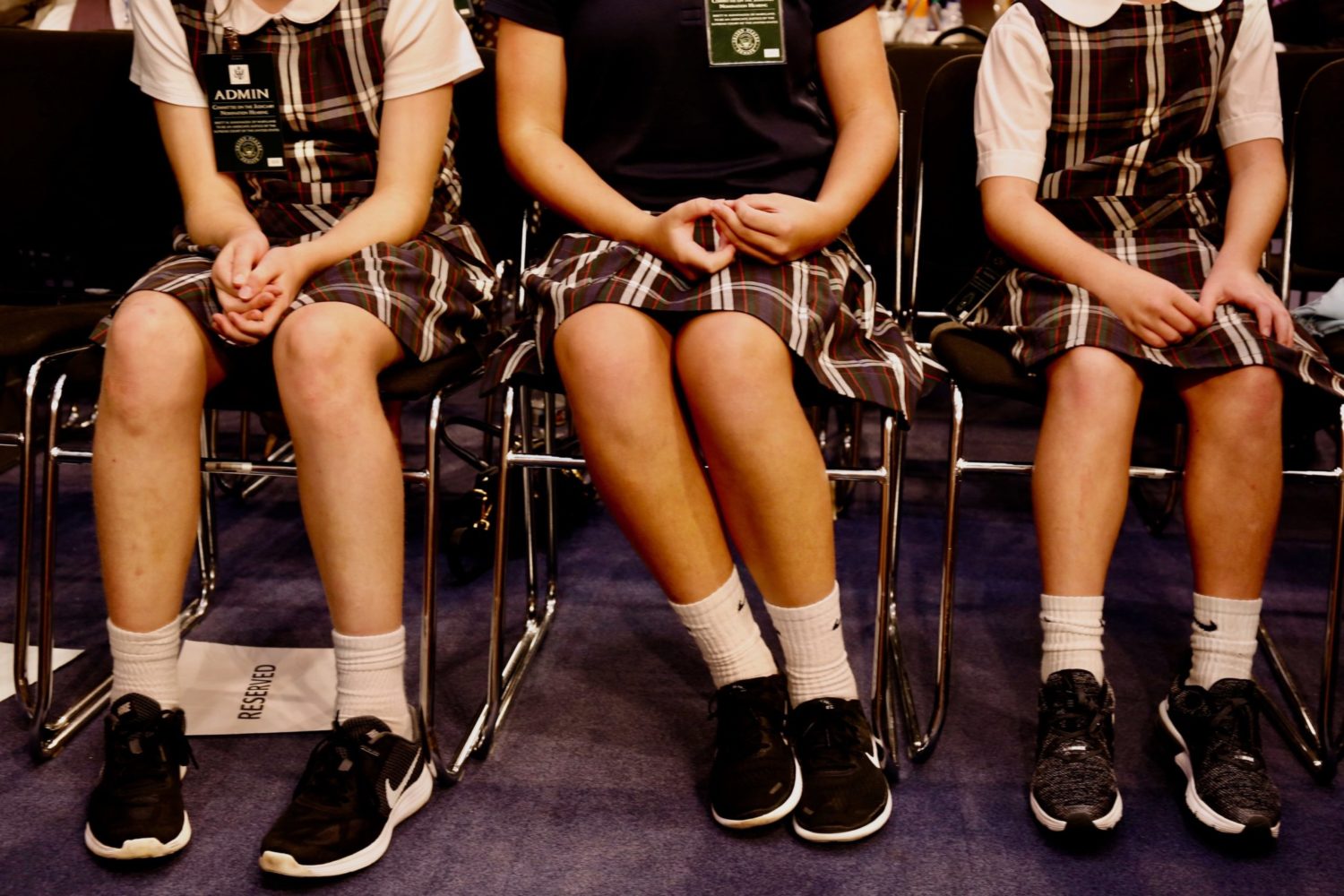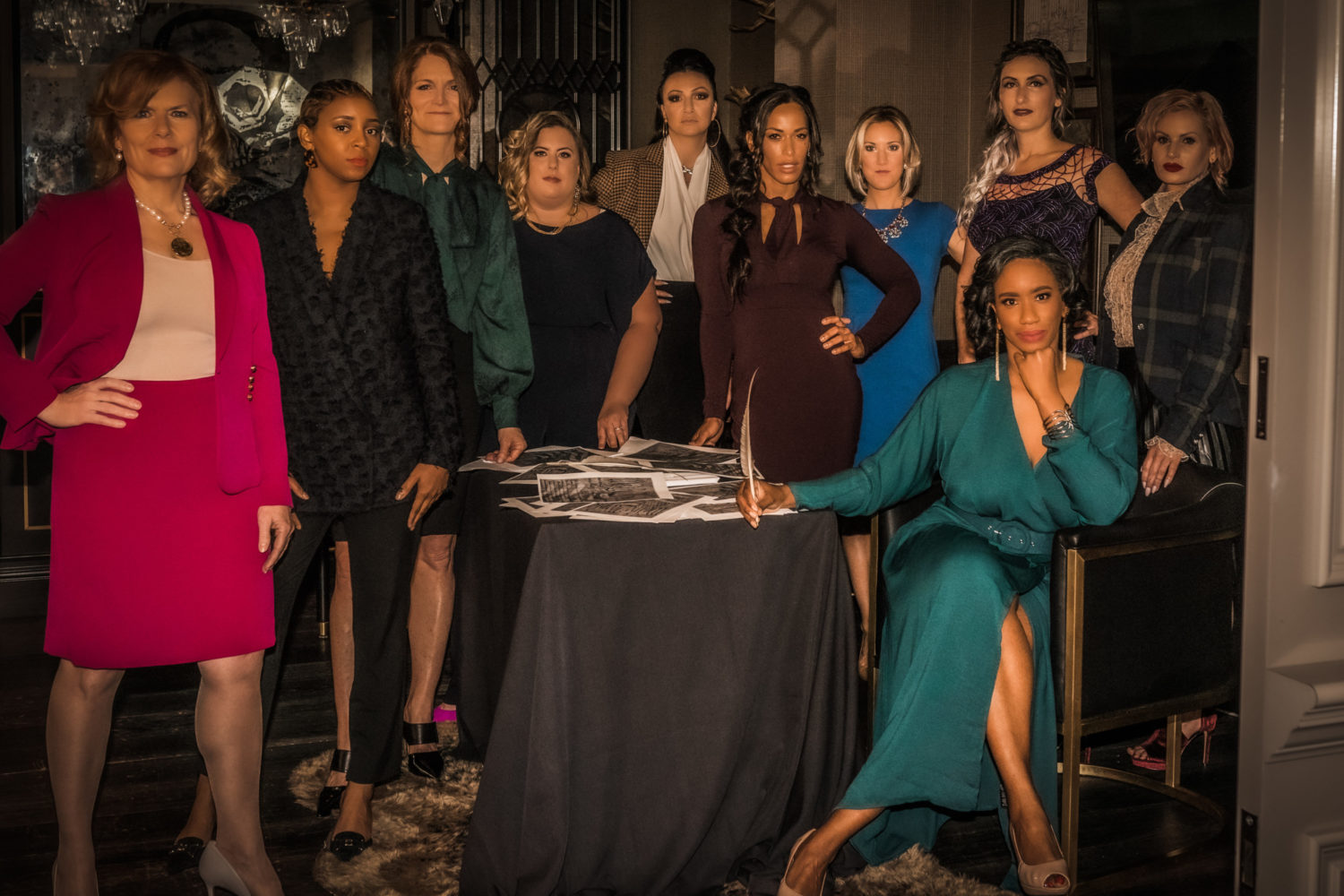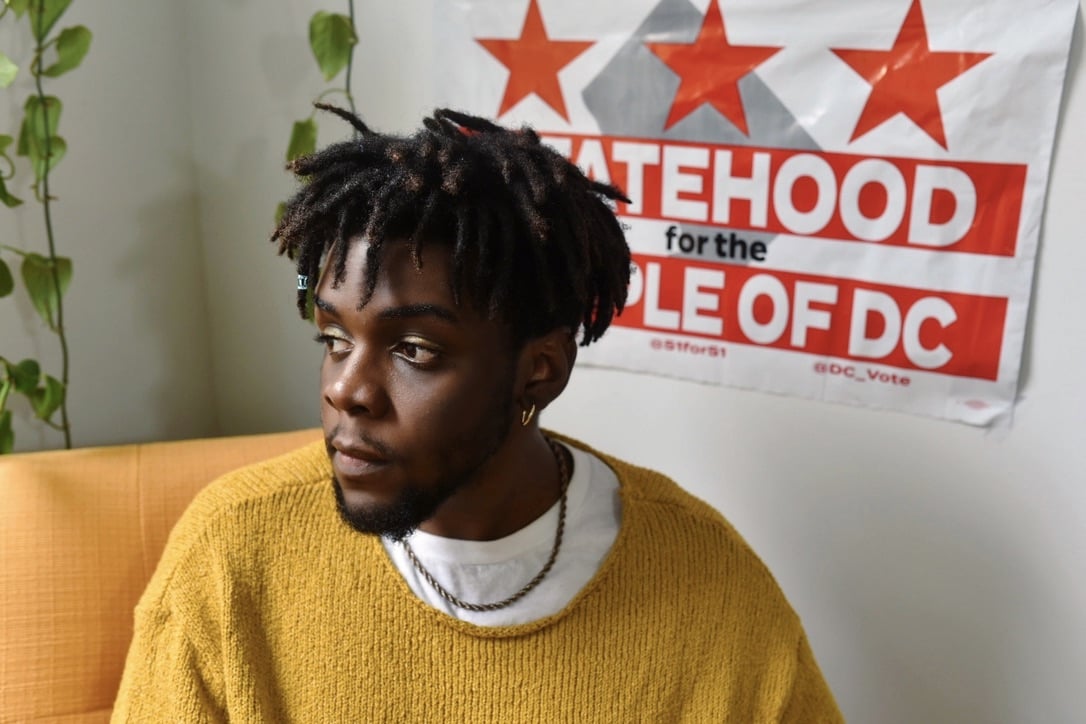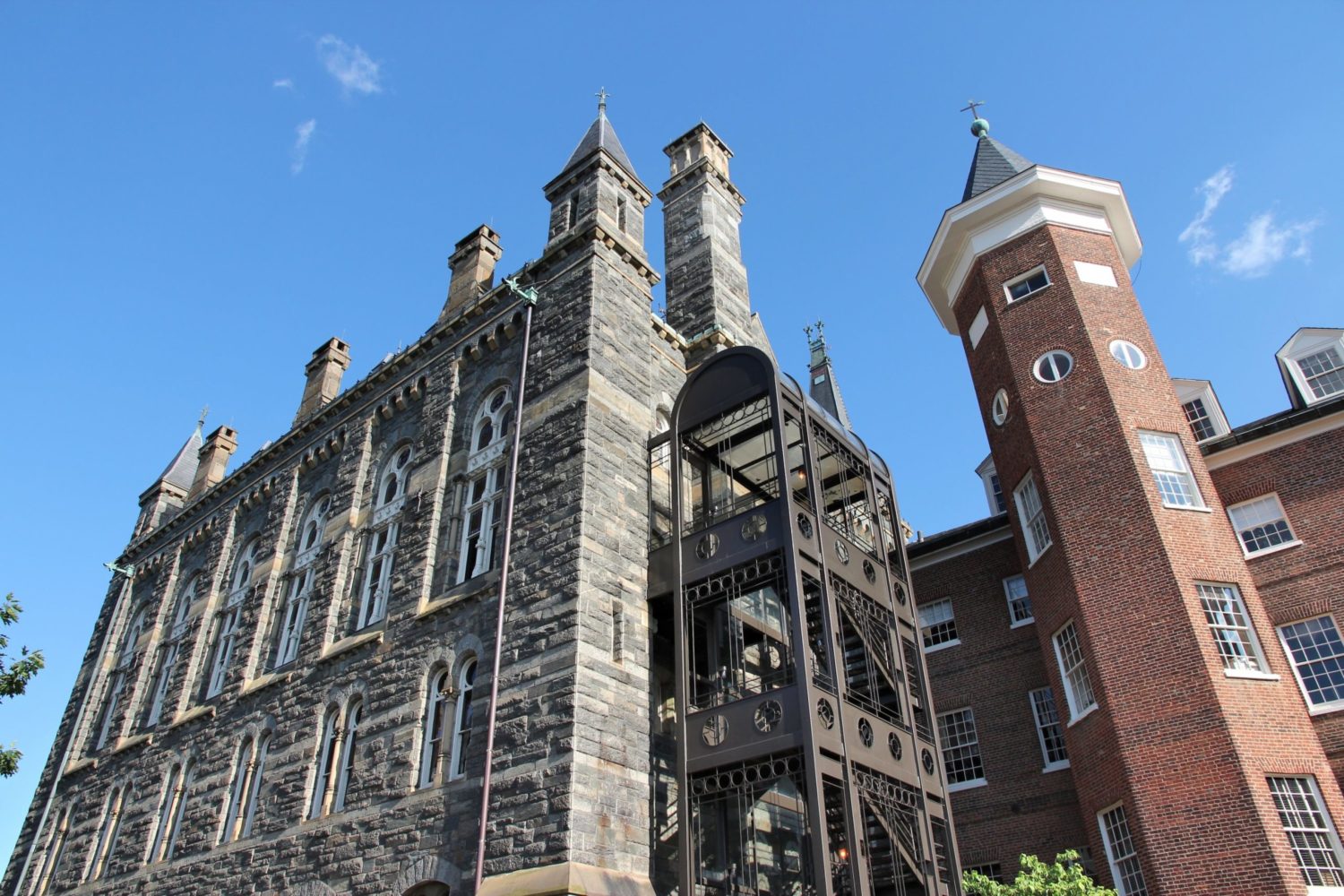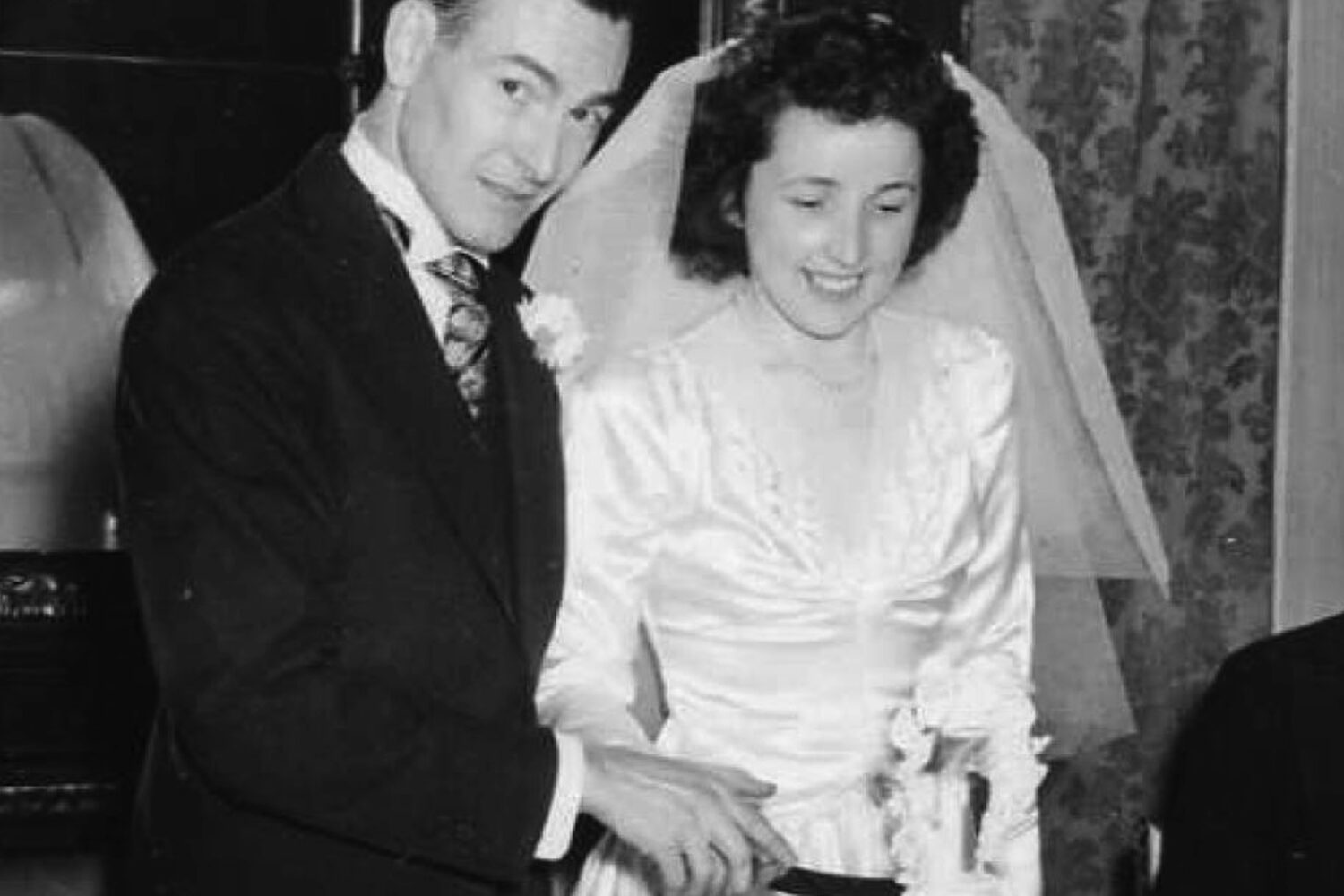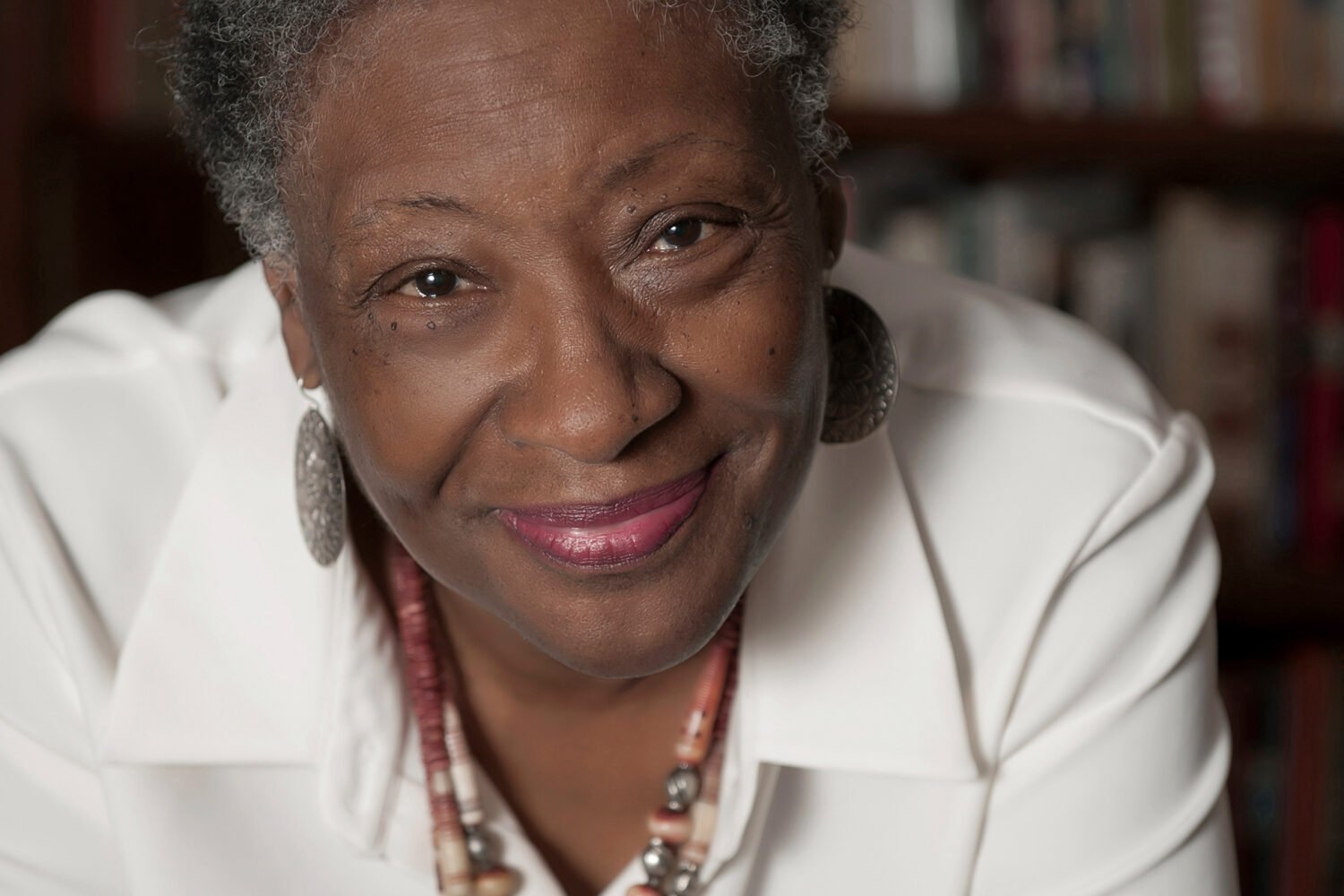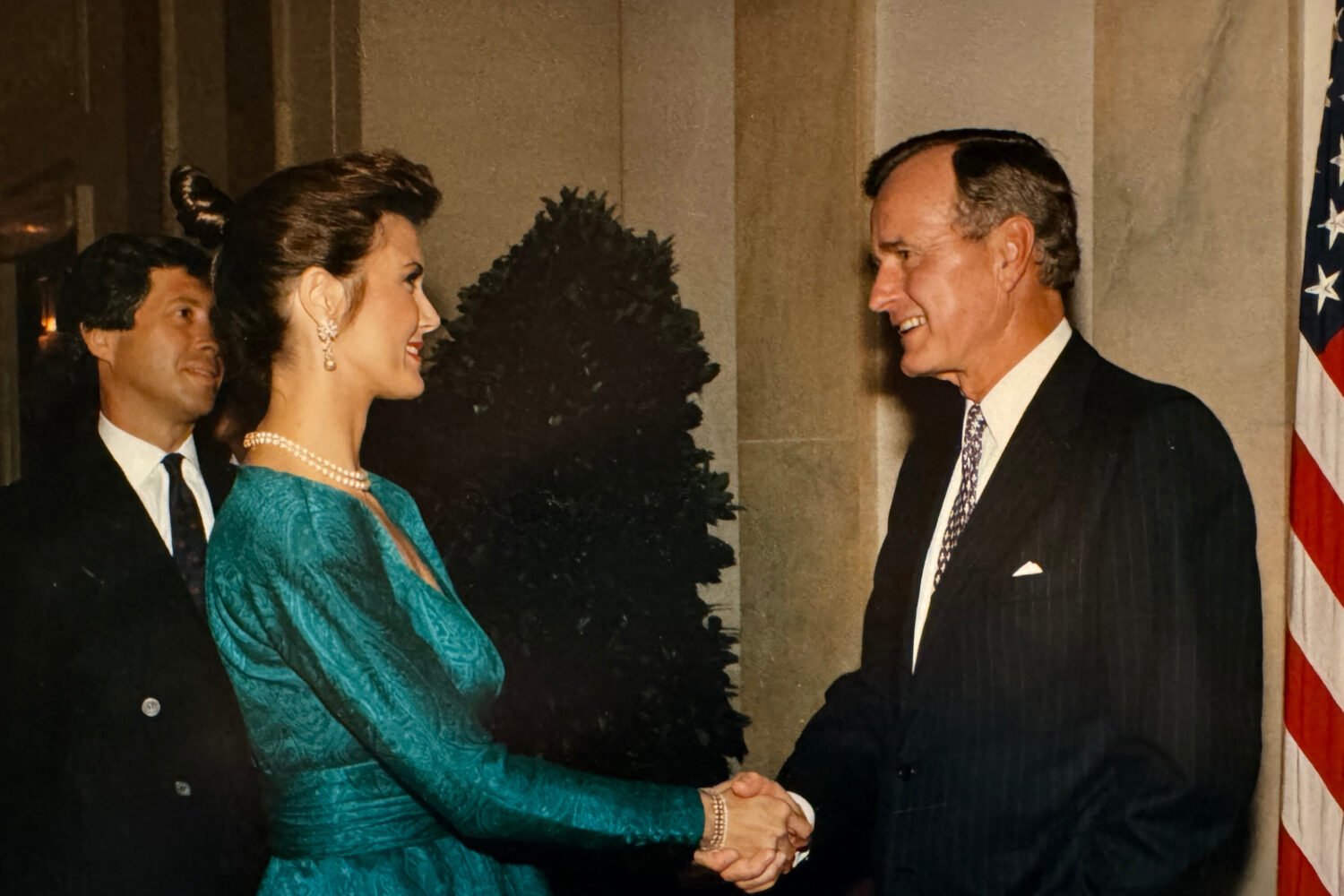What if, instead of a group of white men, our nation’s history had begun with a diverse group of women signing the Constitution?
That’s what the DC marketing agency Nora Lee wanted to explore during a recent photo shoot I took part in at the Hamilton Hotel. Our mission: to embody the spirit of the women’s suffrage movement; to represent diverse cultures, ages, and industries through a collective of ten local female leaders; and to connect and share stories of the struggles we’ve endured. We called ourselves the Founding Females.
What we couldn’t have predicted was that this photo session would become entwined with a historic moment as the nation began to confront a virus of the soul: racism. For my own part, the shoot forced me to revisit feelings of inadequacy, because loving Blackness has always been complicated for me.
To prepare, we toured the Hamilton Hotel’s Suffrage Suite, created in honor of the 100th anniversary of the 19th Amendment, which in August 1920 gave women the right to vote. In that suite, the first image you see is of Wonder Woman—a reminder that being female is a superpower. But my eye was drawn to a different picture: of Shirley Chisholm.
Growing up, I knew her simply as Ms. Shirley. Long before Michelle Obama became First Lady, Kamala Harris ran for President, or Mayor Muriel Browser decreed Black Lives Matter Plaza, Ms. Shirley was the first African American woman elected to Congress, serving seven terms from 1969 to 1983. Not least, in 1972 she was the first Black woman to seek the Democratic nomination for President. In 2015, ten years after her death, she was awarded the Presidential Medal of Freedom. (Younger generations will get to know Shirley Chisholm when Viola Davis depicts her in a forthcoming Amazon biopic.)
When I was a kid, my Blackness was a source of anger and frustration. I was mad at being brown, mostly bald (I pulled out much of my hair due to anxiety), with pouty lips and a not-slim frame. I was called Miss Piggy, fat-lipped, ugly. Yet my mother, Joyce Kennedy, challenged my insecurities in the way she presented herself to the world: in bright-red lipstick, heels despite her five-nine stature, and the most interesting African or other bold attire she could find. Rich brown like me, the daughter of a homemaker and a driver, Mom had had a humble upbringing in segregated South Carolina. She had every reason to lock away her Blackness, considering the hate she faced taking part in sit-ins during the civil-rights protests of the 1960s. While I desperately wanted to be invisible, my mother wore her Blackness like a badge of honor.
Then there was her friend Shirley Chisholm. I was drawn to Ms. Shirley because she didn’t look like the images of beauty depicted in mass media. When she walked into a room, her intellect commanded attention, her warmth made you her ally, and she could disarm any insecurities you had. She had a subtle sense of humor (Mom called it dry), loved to hug, and often engaged me in conversation before turning to speak to my mother. One time I asked Ms. Shirley what it was like to be powerful. Looking down at me through her glasses, she said, “Look in the mirror, because you have your own power.”
As I watched my mother and Ms. Shirley work together to build the National Political Congress of Black Women, its annual convention, and a chapter my mom chaired, I considered the proposition that not only was Black beautiful—it was dynamic and intelligent.
The last time I saw Ms. Shirley, 20 or so years ago, she was boarding a plane and, as always, made time to talk with me. I now understand she was making time to reinforce that I mattered, that I was good enough just as I was, and that despite my self-doubt—and my belief that what little hair I had was bad because it wasn’t like white people’s—I was beautiful, too.
Nevertheless, at the Founding Females photo shoot, I felt myself becoming that awkward girl again. I had assumed that my place would be off to the side or in the back. So when Brandt Ricca, the owner of Nora Lee, told me I’d be seated front and center, I thought, “Is he sure?”
But I also couldn’t shake the memory of Ms. Shirley. For the first time in my life, I was being given—as opposed to fighting or pleading for—a front-row seat. I pushed my shoulders back and glanced in the mirror, just as Ms. Shirley had told me to all those years ago. In it I saw myself in my bright-red lipstick, just like my mother, who was the most confident woman I’ve ever known. I saw her confidence in me, and Ms. Shirley’s as well. As the camera clicked, I tried to embody the spirit of those two women who were so unapologetically fearless in their Blackness.
While this gathering of Founding Females didn’t rewrite history, I do hope it inspires girls to see their skin color as nothing but beautiful and to recognize that, yes, their lives matter. To help them understand that people are fighting for them and that being excellent has always been a part of our history. In this way, my mother, Ms. Shirley, and so many other women will live on.
Melva LaJoy Jones owns LaJoy Plans, a DC-based events-management firm.

